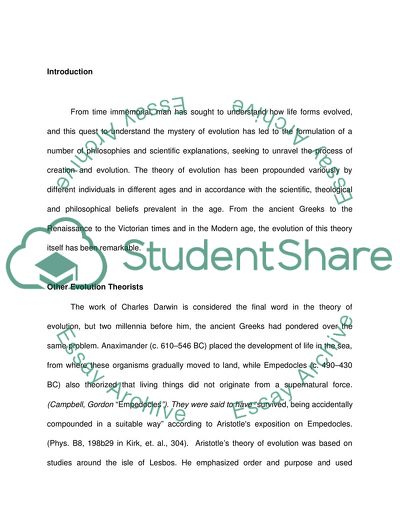Cite this document
(The History of Evolution Research Paper Example | Topics and Well Written Essays - 1250 words, n.d.)
The History of Evolution Research Paper Example | Topics and Well Written Essays - 1250 words. https://studentshare.org/biology/1721455-the-history-of-evolution
The History of Evolution Research Paper Example | Topics and Well Written Essays - 1250 words. https://studentshare.org/biology/1721455-the-history-of-evolution
(The History of Evolution Research Paper Example | Topics and Well Written Essays - 1250 Words)
The History of Evolution Research Paper Example | Topics and Well Written Essays - 1250 Words. https://studentshare.org/biology/1721455-the-history-of-evolution.
The History of Evolution Research Paper Example | Topics and Well Written Essays - 1250 Words. https://studentshare.org/biology/1721455-the-history-of-evolution.
“The History of Evolution Research Paper Example | Topics and Well Written Essays - 1250 Words”. https://studentshare.org/biology/1721455-the-history-of-evolution.


